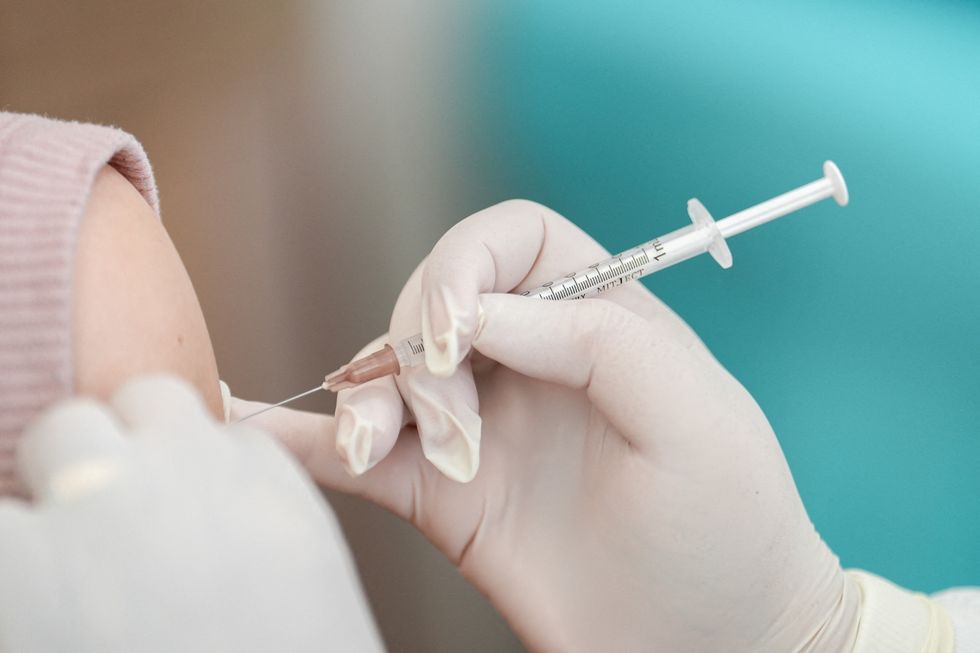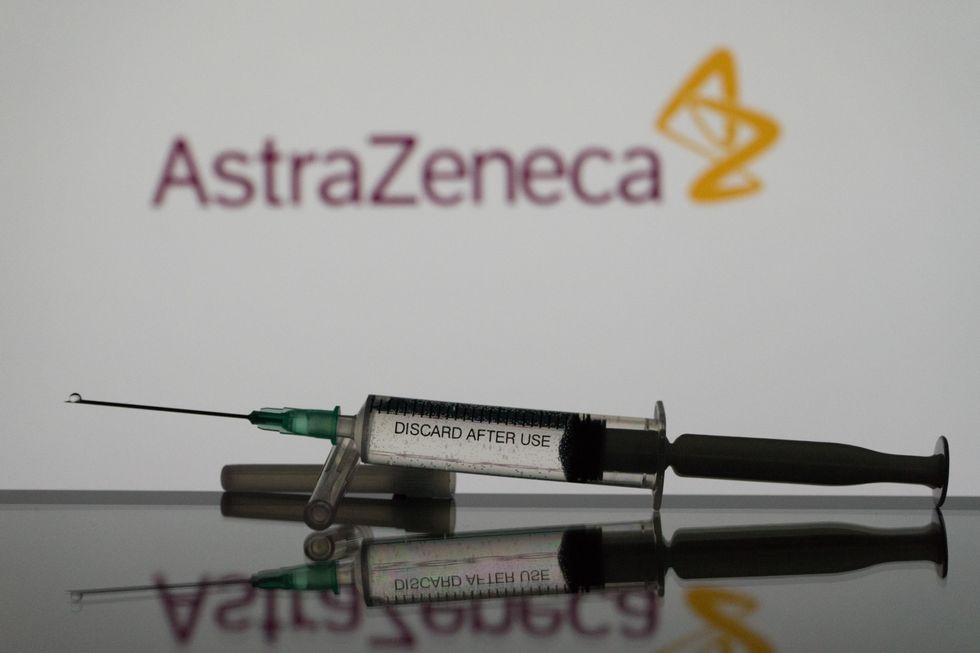AstraZeneca has faced a number of claims of vaccine injury linked to its Covid jab
Getty Images
AstraZeneca has faced a number of claims of vaccine injury linked to its Covid jab, although complications post-vaccination are extremely rare and the benefits of getting vaccinated vastly outweigh the risks
Don't Miss
Most Read
Trending on GB News
AstraZeneca's Covid vaccine has come under scrutiny ever since reports first emerged that it could lead to a rare and dangerous side effect.
The vaccine, sold under the brand names Covishield and Vaxzevria, has been shown to confer substantial protection against COVID-19 and is estimated to have saved more than six millions lives since it was first distributed.
However, in documents lodged with the High Court in February, AstraZeneca admitted that the vaccine "can, in very rare cases, cause TTS" - Thrombosis with Thrombocytopenia Syndrome.
It must be emphasised that the risk to the general population remains vanishingly low and the benefits of getting vaccinated far outweigh the risks.

The benefits of getting vaccinated vastly outweigh the risks for the majority of people
ReutersWhat is TTS and how rare is it?
Thrombosis with Thrombocytopenia Syndrome (TTS) is characterised by blood clots and low platelet levels happening at the same time.
TTS seems to occur because the body's immune system reacts to the vaccine by making antibodies that attack a protein involved in blood clotting, although the exact causal mechanism are not known.
TTS can also occur in the absence of the AstraZeneca vaccine (or any vaccine for that matter).
"Causation in any individual case will be a matter for expert evidence," AstraZeneca has said in relation to the rare side effect of its vaccine.
The rare syndrome occurred in about two to three people per 100,000 who were vaccinated with the Vaxzevria vaccine.
AstraZeneca vaccine side effect timeline
On April 7 2021, the Medicines and Healthcare products Regulatory Agency (MHRA) issued updated information on the “possible risk of extremely rare and unlikely to occur specific types of blood clots” following vaccination with the AstraZeneca jab.
The regulator said the benefits of vaccination “continue to outweigh any risks” but advised “careful consideration be given to people who are at higher risk of specific types of blood clots because of their medical condition”.
AstraZeneca has faced a number of claims of vaccine injury linked to the jab.
Last year lawyers acting on behalf of father-of-two Jamie Scott told the High Court that he has suffered brain injury after receiving the vaccine.
It must be stressed that the risk to benefit ratio leans heavily in one direction.
Or, As Doctor Michael Head, senior research fellow in global health at the University of Southampton, succinctly put it: “It has been an excellent and vital vaccine, a key part of the pandemic response for most countries around the world.
“There would have been far more deaths, hospitalisations, illness and transmission, if we hadn’t had the AstraZeneca vaccine, alongside the other key vaccines such as Pfizer and Moderna."
LATEST DEVELOPMENTS
 The Oxford-AstraZeneca Covid vaccine is being withdrawn worldwideGetty
The Oxford-AstraZeneca Covid vaccine is being withdrawn worldwideGettyEstimates suggest that the rollout of the jab saved 6.3 million lives around the world.
And the benefits of getting vaccinated still overwhelmingly outweigh the risks posed by Covid.
A 2023 study by the University of Oxford analysed the health records of 29.1 million people in England and estimated that for every 10 million people who are vaccinated with AstraZeneca, there are 66 extra cases of blood clots in the veins and seven extra cases of a rare type of blood clot in the brain.
Infection with COVID-19, in contrast, is estimated to cause 12,614 extra cases of blood clots in the veins and 20 cases of rare blood clots in the brain.
The safety of the vaccines has been extensively reviewed in both adults and children by the independent Medicines and Healthcare products Regulatory Agency (MHRA).
AstraZeneca maintains that patient safety remains its top priority and emphasises that regulatory authorities have stringent standards to ensure the safety of vaccines.
NHS England is urging at-risk groups to get vaccinated against COVID-19 this spring.People at increased risk from severe illness can get the vaccine, including those aged 75 or over (on 30 June 2024), people with a weakened immune system or who live in an older adult care home.
UKHSA surveillance data on last spring’s programme showed that those who received a vaccine were around 50 percent less likely to be admitted to hospital with Covid-19 from two weeks following vaccination, compared to those who did not receive one.








